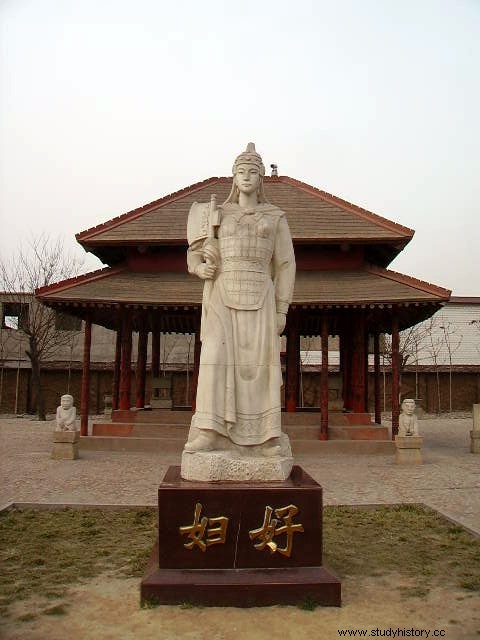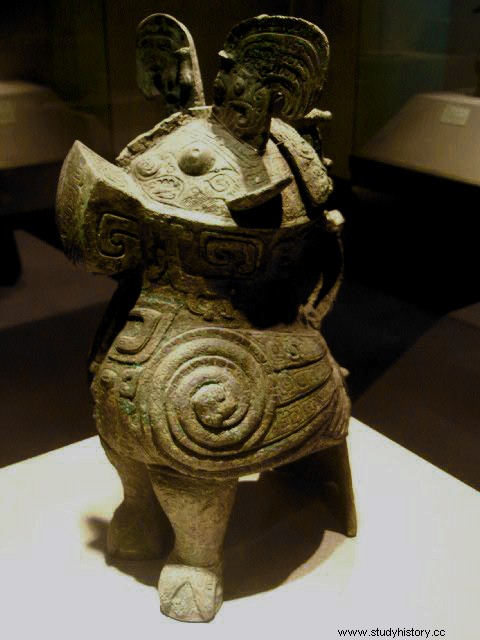Wife of a king of the Shang dynasty, Fu Hao (circa 1250-1200 BC) climbed the ladder of power. High priestess and general-in-chief of the armies, she distinguished herself by great military victories.
King's wife

Fu Hao is known to us mainly through inscriptions on oracular bones, the typology of his royal tomb and his funerary furnishings, and information about his life is fragmentary.
She is the wife of the 22 e king of the Chinese Shan dynasty, King Wu Ding, who reigned in the first decades of the 12th th century. To ensure good relations with the neighboring tribes coming to swear allegiance to him, Wu Ding marries a woman from each of them. Fu Hao is thus one of the 64 wives of the king, but she manages to climb the ranks and reach a high status.
High Priestess
Religious rituals, sacrifices to the gods, and divinatory practices played an important role at court, and Wu Ding regularly entrusted these to Fu Hao. She presides over ceremonies, prepares offerings and interprets oracles:turtle shells or beef bones are cooked in the fire until cracks form, which are then interpreted. The method and the result are then engraved on the object by the diviner; many turtle shells bearing Fu Hao's name have been found.
This prestigious role of high priestess and oracle is highly unusual for a woman at the time, and reveals Fu Hao's particularly high status at court. A power and influence that is not only expressed through this religious role, but also through another crucial area:war.
Warchief
Archaeological sources reveal that Fu Hao led Shang troops on several military campaigns. After decades of sporadic conflict between the Shang and the Tu-Fang, she defeats them in a single battle. A fine strategist, she also defeats the Yi, the Qiang and the Ba; his victory against the latter remains in Chinese history as the first large-scale ambush.
Fu Hao leads up to 13,000 soldiers and counts influential generals such as Zhi and Hou Gao among his subordinates; she is the most powerful and influential Shang general of her time. This military function, associated with his religious role, is attested by the sources but also by the many weapons of war found in his tomb.
Fu Hao receives from her husband a domain at the borders of the empire, which she administers herself. She gives birth to a son, Prince Jie; oracular sources indicate that the court was concerned about her health at the time of delivery.
Fu Hao's tomb

When Fu Hao died, Wu Ding had a royal tomb built for him near Anyang, the capital of the Shang. Found intact in 1976, it houses the coffin of the queen but also sixteen skeletons, probably servants or slaves of the queen sacrificed at the time of her death.
The tomb is full of wealth and objects of exceptional quality revealing the particularly high status of Fua Hao:130 bronze weapons, including large battle axes, a set of 755 jades, bone arrowheads, numerous cult objects , nearly 7,000 cowries… Most of the bronzes are engraved with the posthumous name of the queen:Si Mu Xin (Mother Xin).
